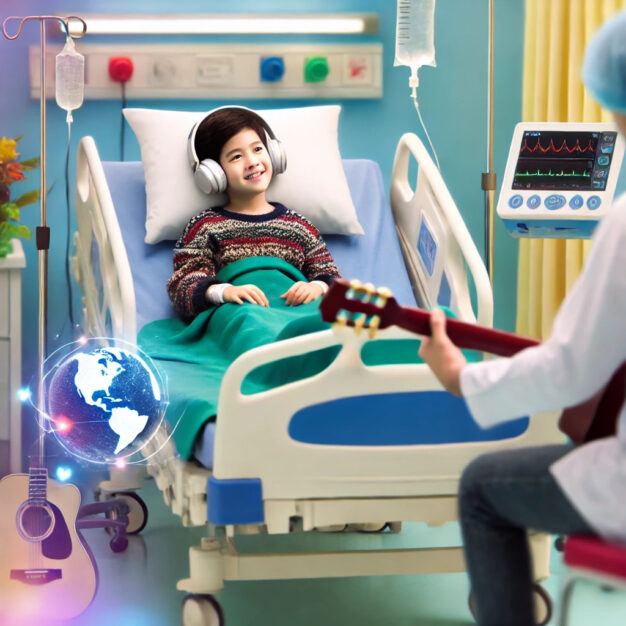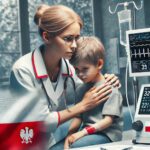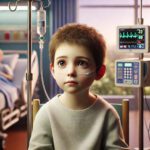🎵 A musicoterapia (MT) e a medicina musical (MM) oferecem benefícios significativos para crianças e jovens com doenças raras em ambientes de saúde.
- Por que isso importa: Intervenções musicais podem reduzir ansiedade, estresse e dor, além de melhorar a comunicação, habilidades sociais e qualidade de vida para jovens pacientes com doenças raras.
🧠 O que está acontecendo: Pesquisas mostram que tanto MT quanto MM têm efeitos positivos em crianças com doenças raras.
- MT envolve um relacionamento terapêutico com um Musicoterapeuta treinado.
- MM geralmente envolve ouvir música sem a orientação de um terapeuta.
🏃 Resumindo: MT e MM beneficiam o bem-estar fisiológico e psicológico das crianças.
- MT ajuda a reduzir a frequência cardíaca, melhorar o sono e aliviar a dor.
- MM auxilia na redução da ansiedade e melhora a qualidade do sono.
🖼️ O quadro geral: Tanto MT quanto MM oferecem maneiras únicas e não verbais de melhorar a experiência de cuidados de saúde para crianças com doenças raras, beneficiando tanto os pacientes quanto suas famílias.
💭 Nossa opinião: Enfatizar a musicoterapia no cuidado pediátrico pode melhorar significativamente o tratamento holístico de crianças com doenças raras.
O artigo em perguntas e respostas
Quais são algumas descobertas importantes da revisão abrangente sobre o uso da musicoterapia e da medicina musical para crianças com doenças raras?
Algumas descobertas importantes da revisão abrangente sobre o uso da musicoterapia e da medicina musical para crianças com doenças raras incluem:
- Benefícios para a saúde e bem-estar das crianças com doenças raras e condições complexas.
- Redução da ansiedade, estresse e dor durante procedimentos clínicos.
- Melhoria da comunicação, habilidades sociais e de enfrentamento.
- Aumento da qualidade de vida dessas crianças.
- Uso da música como uma linguagem não verbal acessível, promovendo conexão e comunicação.
- Adaptação da música às necessidades e preferências individuais das crianças, contribuindo para seu bem-estar emocional.
Essas descobertas destacam o papel significativo da musicoterapia e da medicina musical no suporte à saúde e ao bem-estar de crianças com doenças raras em ambientes de saúde.
Como a pesquisa nesta revisão contribui para nossa compreensão dos benefícios potenciais da música em ambientes de saúde para populações pediátricas com condições complexas?
A pesquisa nesta revisão contribui para nossa compreensão dos benefícios potenciais da música em ambientes de saúde para populações pediátricas com condições complexas, fornecendo evidências concretas dos seguintes aspectos:
- Demonstração dos benefícios da musicoterapia e da medicina musical na redução da ansiedade, estresse e dor em crianças durante procedimentos clínicos.
- Destaque para a melhoria da comunicação, habilidades sociais e de enfrentamento das crianças por meio da música.
- Ênfase na importância da música como uma ferramenta terapêutica acessível e não verbal, promovendo conexão e expressão emocional.
- Reconhecimento da música como uma forma de apoio emocional e de qualidade de vida para crianças com doenças raras, cujas jornadas médicas são frequentemente desafiadoras.
Essa pesquisa reforça a importância da integração da música como uma abordagem terapêutica eficaz para melhorar o bem-estar e a experiência de crianças com condições complexas em ambientes de saúde.
Quais são algumas implicações práticas e recomendações para profissionais de saúde que trabalham com crianças e jovens com doenças raras com base nos resultados desta revisão?
Com base nos resultados desta revisão, algumas implicações práticas e recomendações para profissionais de saúde que trabalham com crianças e jovens com doenças raras incluem:
- Incorporar a musicoterapia e a medicina musical como parte integrante dos cuidados de saúde para crianças com doenças raras, visando melhorar sua qualidade de vida e bem-estar emocional.
- Desenvolver programas de intervenção musical personalizados, adaptados às necessidades individuais e preferências das crianças, para promover a comunicação, expressão emocional e conexão.
- Capacitar os profissionais de saúde para reconhecer e integrar a música como uma ferramenta terapêutica eficaz no manejo da ansiedade, estresse e dor durante procedimentos clínicos.
- Estabelecer parcerias com musicoterapeutas qualificados para oferecer intervenções musicais especializadas e centradas na família para crianças com doenças raras.
- Promover a conscientização sobre os benefícios da música na saúde e bem-estar das crianças com doenças raras entre os profissionais de saúde, famílias e cuidadores.
Essas recomendações visam melhorar a qualidade dos cuidados de saúde prestados às crianças e jovens com doenças raras, destacando o papel terapêutico e integrador da música nesse contexto.






